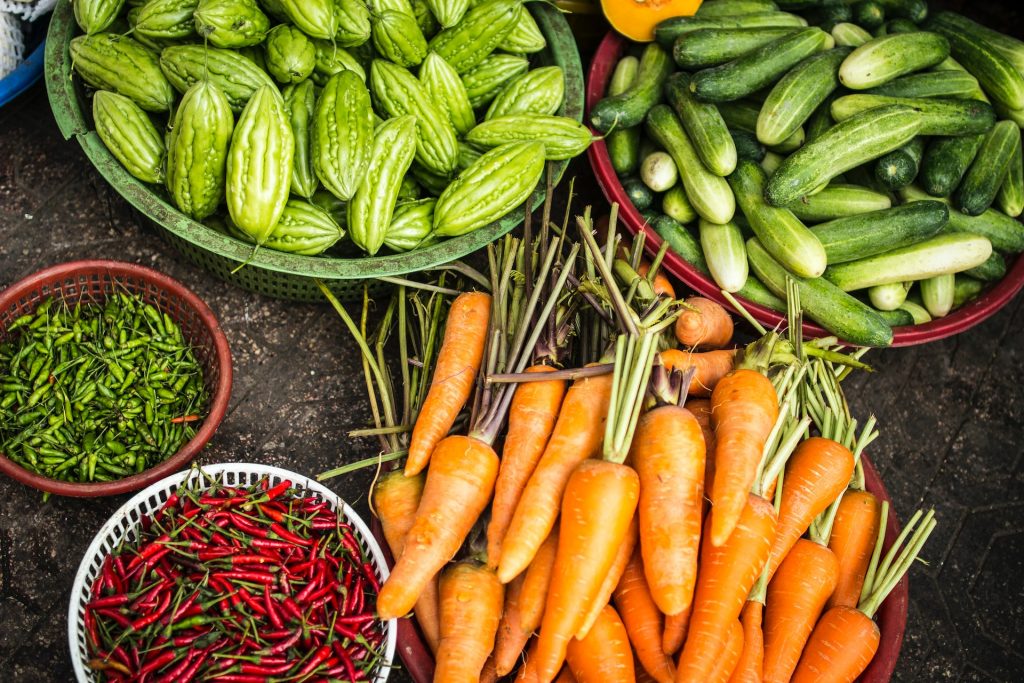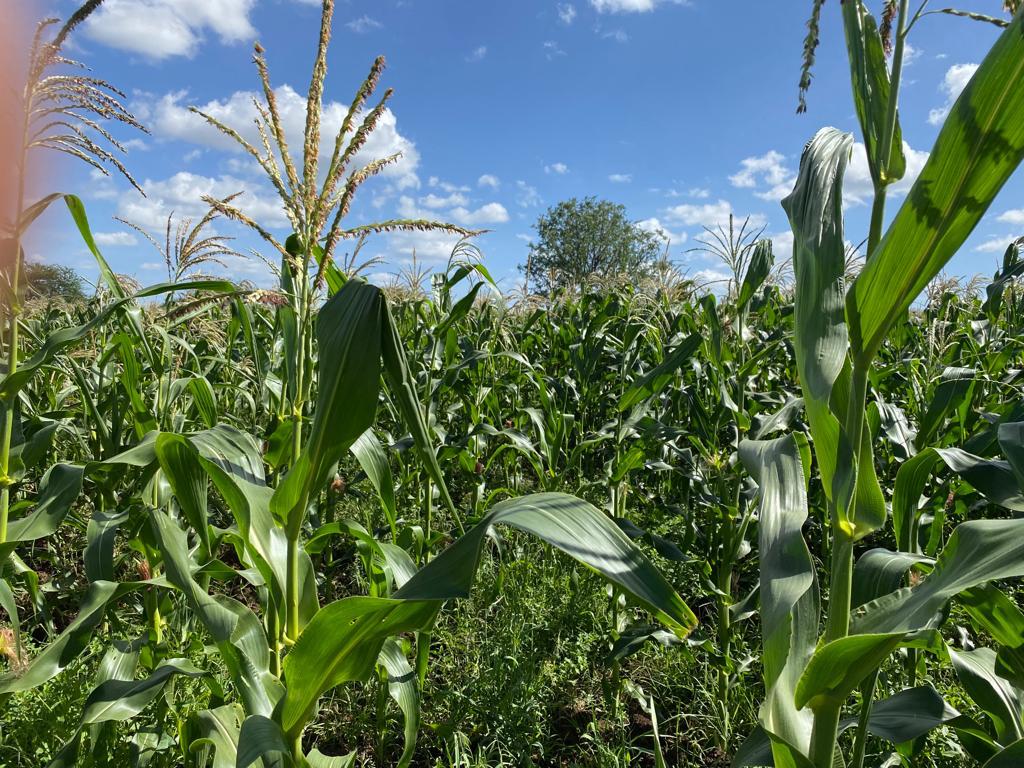Contact Info
- 6th Floor, I & M Building 2nd Ngong Avenue, Upper Hill
- +254 (0)20 2985000; +254 (0)729 111031 / +254 (0)731 000065
- info@pasgr.org
- Office Hrs: Today 9.00am to 6.00pm
The Research Programme facilitates capacity development and knowledge production for policy relevant social and governance research in Africa through collaborations with researchers based in their home institutions. The programme aims to provide high quality policy relevant research to varied audiences; integrate policy actors into the different phases of the governance research process and institutionalise research-policy communities to facilitate uptake of research evidence in study countries.
PASGR-facilitated research has a unique focus on governance. Utafiti Sera (research-policy community) is being integrated into various research themes, to facilitate the research-policy engagement process.
Food Systems Transformation (FST) is a 30-month evidence dissemination and uptake project that seeks to foster research uptake into policies and practices towards strengthening of equitable, inclusive, resilient, and sustainable food systems in Kenya. The FST aims to achieve the following objectives:
Project period: April 2023 – September 2025
Project Supported by: International Development Research Centre (IDRC)
Project Contact Details: PASGR


A4EA is an international research programme which explores how social and political action can contribute to empowerment and accountability in fragile, conflict, and violent settings, with a particular focus on Egypt, Mozambique, Myanmar, Nigeria and Pakistan
Project Supported by: Foreign, Commonwealth & Development Office
Our research in this work stream investigates how and under what conditions struggles over energy access in fragile and conflict affected settings empower citizens to hold public authorities to account over energy in in Mozambique, Nigeria, and Pakistan.
Upcoming journal paper:
‘Aluta discontinua: Nigeria fuel protests and their lessons on midwifing empowerment in fragile and conflict-affected settings’
Submitted to the Development Studies Association annual conference held in June 2021.
PASGR is conducting conjoint comparative mixed methods research in Nigeria and Pakistan to evaluate the impact of interventions designed to strengthen collective action among women at the neighbourhood level with an aim of encouraging claim-making by women on service delivery by local governments. The workstream is exploring preconditions for women’s leadership and collective action, role of formal and informal networks and alliances, and the range of strategies used by women, to identify when and how these contribute to the strengthening of empowerment and accountability outcomes for women.
The project took advantage of the COVID-19 pandemic to design a study assessing the factors that shape COVID-19 vaccine acceptance in the urban Global South (Lagos and Lahore). With this study we seek to understand how vaccine acceptance manifest in contexts with deep pre-existing gender inequalities in agency and healthcare access. We employed phone-based surveys conducted in households across Lagos, Nigeria and Lahore, Pakistan – contexts that have faced challenges in the delivery of the polio vaccine – to understand what drives attitudes towards COVID-19 vaccination. The team concluded the survey in February 2021 and later worked on the following outputs:
ACRC programme integrates a “city as a system” approach with rigorous political analysis to tackle complex problems in 13 African cities.
The programme cities are; Accra, Addis, Bukavu, Dar es Salaam, Freetown, Harare, Kampala, Khartoum, Lagos, Lilongwe, Maiduguri, Mogadishu, and Nairobi. The programme consortium, bringing together 9 partners, is led by the University of Manchester. The programme will use an iterative trans-disciplinary approach to create an integrated framework for understanding ongoing challenges, policy options and practical action. This is supported by two conceptual pillars: “political settlements plus” and the “city as system”.
PASGR is leading on uptake and impact.
Project period: 2020 – 2026
Project Supported by: Foreign, Commonwealth & Development Office
Project partners:
Accountability for Water (AfW) is a 30-month collaborative research and uptake programme that seeks to produce and share research, knowledge and evidence to strengthen accountability for water supply, sanitation and hygiene services, water resource management and good water sector governance. Led by PASGR, the programme brings together; WaterAid, Oxfam, Water Integrity Network, Water Witness, Shahidi wa Maji, Kenya Water and Sanitation Network, Water Witness Ethiopia and the Institute of Development Studies Sussex. Its aim is to accelerate and ensure equitable delivery of the SDG 6 ‘sustainable water and sanitation for all’. The initial phase of the research seeks to address the needs of stakeholders in Kenya, Tanzania and Ethiopia and Zambia, including government, civil society, and research and donor communities.
Project period: December 2019 – June 2022
Project Supported by: William and Flora Hewlett Foundation
Project partners:
PASGR, WaterAid, Oxfam, Water Integrity Network, Water Witness, Shahidi wa Maji, Kenya Water and Sanitation Network, Water Witness Ethiopia, and the Institute of Development Studies Sussex.
The programme outcomes and workstreams are organized into three focus areas.
The project entails background research and convenings on Inclusive and Just Social Protection in Africa that address three areas of interest:
Project period: October 2019 – April 2021
Project Supported by: Open Society Initiative for Eastern Africa
Project partners:
PASGR commissioned three background papers and has organized a series of three (3) thematic convenings aligned to the background papers with the links below:
Research question: what are young women and men’s aspirations, and what adaptability and resilience strategies are employed to pursue these aspirations, especially in the face of militating policy, pandemic and other challenging environments?
Where: Ethiopia, Ghana, Kenya, Nigeria, Rwanda Senegal, Uganda
Narratives about young women and men and their aspirations, especially in Africa, are constantly in flux. Initially perceived as disruptive and even lazy, young women and men are now gradually seen as productive, creative and resilient (Ligtvoet, 2018). There is, however, no permanence to this emerging perspective, especially when one factors in the globally disruptive impact of Covid-19. The pandemic brought immense distress globally, but it has also provided young women and men opportunities to showcase creativity, resilience and technological savviness. This perspectival instability about young people calls for a constant revisit of their world, especially young people’s aspirations and resilience in the unstable face of a global pandemic.
This project explores young women and men’s aspirations and resilience in Africa before and during COVID-19 to understand the implications of the crisis for young women and men’s lives now and in the future. The project involves in-depth work in Ethiopia, Ghana, Kenya, Nigeria, Rwanda, Senegal and Uganda.
Project period: March 2021 – December 2023
Project Supported by: MasterCard Foundation
Project work involves three work packets:
Utafiti Sera is PASGR’s innovative flagship approach to evidence informed policy making (EIPM) that entails a series of structured activities that facilitates the building of a community of stakeholders working together to ensure that appropriate and negotiated civic actions and policy uptake occur around a particular public problem for which there is research evidence.
In the past four year, this programme has grown phenomenally from an initial proof of concept on two (2) communities of practice in Kenya funded by the Dutch government development platform INCLUDE for USD 90,000 to eight (8) active communities of practice supported by over USD 1 Million of funding in more than three (3) countries.
Current Utafiti Sera work involves supporting governments and stakeholders to access, appraise, and apply multiple sources of evidence in the five (5) key policy areas: Urban Governance Nairobi, Urban Governance Kigali, Accountability for Water in Kenya, Youth Employment Creation in Kenya and Action for Empowerment and Accountability in Nigeria. This exponential growth has come with exceptional workload and major changes in maintaining the quality of work as well as ensuring a good grasp of the programme’s theoretical and conception understanding of EIPM in Africa.
Project period: Ongoing / perpetual
Project Supported by: William and Flora Hewlett Foundation
The Urban Governance house seek to influence decision making structures to use evidence in developing models of engagement that will re-balance power relations and contribute towards outcomes of building inclusive economies. This will in turn enable collective agency and duty bearers’ responsiveness in reversing the circumstances and policy choices which deny the urban Kenyan dignity and voice to enjoy their Right to the City.
Project period: Ongoing / perpetual
Project Supported by: William and Flora Hewlett Foundation
Project implemented in collaboration with: Pamoja Trust
The house is guided by the following specific objectives
To achieve these objectives, the house is organized in three thematic areas i.e. Stakeholder engagement, Strategic planning and Teaching Urban Discourse.
The Urban Governance house seek to influence policies and programmes on Addressing Urban Governance Issues in Rwanda in six secondary cities. The activities entail a series of stakeholders’ forums that focus on urban governance in the secondary cities of Huye, Musanze, Rubavu, Muhanga, Rusizi, and Nyagatare. The six cities have been prioritized by the government as growth poles to complement the capital city Kigali. This is expected to spread development in all parts of the country thus boosting national economic development as planned in the national strategy for transformation (NST1) and Vision 2050 blue print.
Project period: February 2020 – August 2022
Project Supported by: William and Flora Hewlett Foundation
Project implemented in collaboration with: Institute of Policy Analysis and Research – Rwanda
The house seeks to build networks, analyse policy, disseminate information and provide relevant advice for improving agricultural sector policy and practice in agricultural value chains focusing on the Potato and Mango value chain. The selection of these initial value chains was informed by both food security and manufacturing pillars of the Big 4 Agenda and the available opportunities to incorporate Micro, Small & Medium Enterprises (MSMEs) in related sectors of the economy.
The house is jointly co-hosted by two partners:
The Centre for African Bio-Entrepreneurship (CABE) – A Non-Governmental Organization registered in 2004, with a vision of being a lead promoter of agri-preneurs in Kenya
The Alternatives Africa Limited (Alternatives) – founded in 2014, is an accelerator for youth-owned micro and small enterprises targeting young entrepreneurs, innovators and skilled youth in Kenya and Africa
Project period: November 2019 – October 2024
Project Supported by: William and Flora Hewlett Foundation
Project implemented in collaboration with:
The house is guided by the change objective: Enhancing informed decision making (policy and practice) for youth employment creation and agro-enterprise development (viz. Mango and Potato value chain) detailed as:

6th Floor, I & M Building
2nd Ngong Avenue, Upper Hill
P.O. Box 76418-00508
Nairobi, Kenya
Email: info@pasgr.org
Tel: +254 (0)20 2985000;
+254 (0)729 111031 / +254 (0)731 000065
Legal counsel provided by Hurwit & Associates and Muthoga Gaturu & Co. Advocates